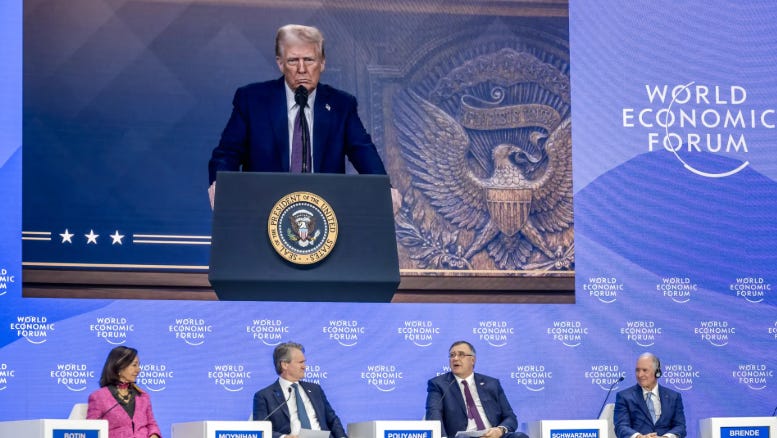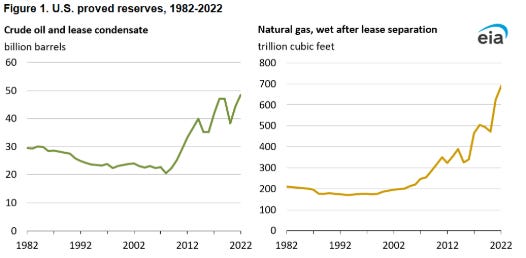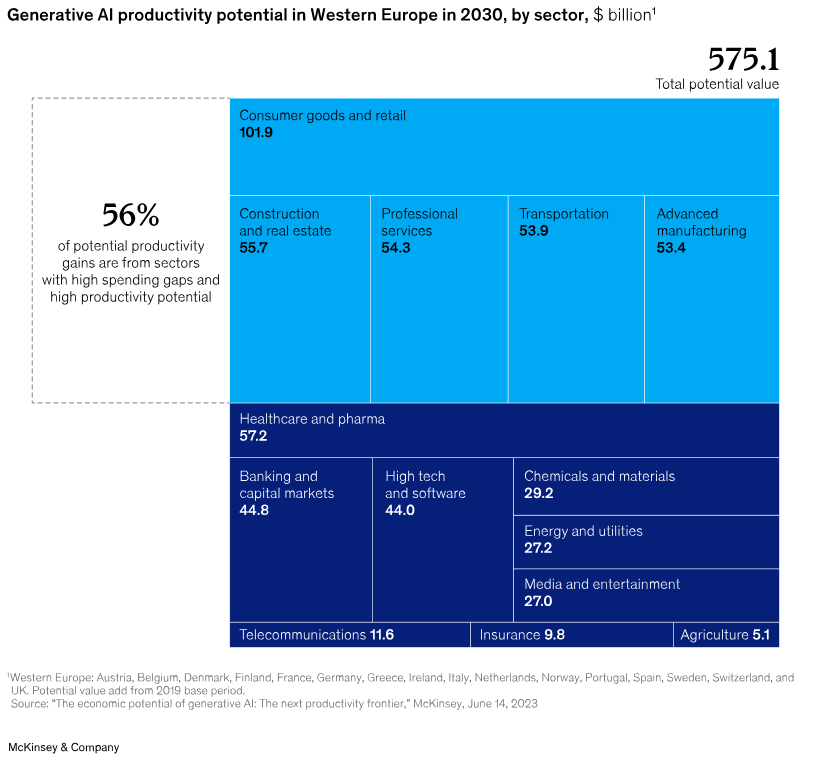Trump's Push for Cheap Oil, AI Dominance Widens EU-US Policy Gap
EU’s reliance on renewables has put the bloc at an AI disadvantage

The policy gap between the European Union (EU) and the United States (US) has widened even further on a range of critical issues after the presidential inauguration of Donald Trump on Monday, January 20.
This includes EU-US policy gaps on climate change and energy use, a regulatory framework for Artificial Intelligence (AI), and free speech. While speaking at the World Economic Forum (WEF) in Davos, European Commission (EC) President Ursula von der Leyen and Trump had vastly different messages.
Von der Leyen described the 2015 Paris Agreement as “the best hope for all humanity” to “protect nature and stop global warming.” Trump withdrew the US from the accord on the first day of his return to the Oval Office, describing it as one-sided, and ended US participation in the Green New Deal.
“I terminated the ridiculous and incredibly wasteful Green New Deal,” Trump told heads of state, politicians and business leaders attending WEF during a virtual address on Thursday. “I call it the “Green New Scam” and ended the insane and costly electric vehicle (EV) mandate.”
In contrast to Trump’s position on electric vehicles (EVs), the EU approved a plan in 2023 that would require all new cars sold in the EU to be zero-emission vehicles starting in 2035. The rule on CO2-emission-free cars is part of the European Green New Deal, a policy that will reduce greenhouse gas emissions by at least 55% by 2023.
Trump Oil Push Highlights in EU-US Policy Gap
Trump, however, has pledged to “unlock the liquid gold under our feet and pave the way for rapid approvals of new energy infrastructure.” The US “has the largest amount of oil and gas of any country on Earth, and we’re going to use it,” Trump added.
The US ranks fifth in the world for proven oil reserves, with approximately 48.3 billion barrels as of the end of 2022, according to an April 2024 report from the US Energy Information Administration. For natural gas, the US holds the largest reserves globally, with about 691 trillion cubic feet as of the end of 2022.

The EU, in contrast, relies almost entirely on imports for its liquefied natural gas (LNG) and crude oil consumption. In 2023, the United States was the largest LNG supplier to the EU, representing almost 50% of total imports.
To reduce its dependence on oil and natural gas imports, the EU-US policy gap on energy widens as Europe is turning to renewables. This effort became urgent after Russia attempted to weaponize its energy exports after its full-scale invasion of Ukraine.
“EU energy security will be achieved by replacing imported fossil fuels with domestically produced renewable energy and improving energy efficiency,” the EC said in a report.
EU Reliance on Renewables Puts Bloc at AI Disadvantage
The EU’s reliance on renewables has put the bloc at an AI disadvantage. Europeans are paying some of the world’s highest energy costs at a time when AI’s need for power is threatening to overwhelm energy sources.

By 2030, data centers for AI may use more electricity than India, the world’s most populous country, Arm Holdings Plc Chief Executive Officer Rene Haas told Bloomberg. For Trump, the US must tap its energy supplies to position the world’s largest economy as the world’s capital of AI.
“Not only will this reduce the cost of virtually all goods and services, it will make the United States a manufacturing superpower and the world capital of artificial intelligence and crypto,” he said.
This will likely widen the gap in GDP between the EU and the US. In 2008, for example, the eurozone and the US had equivalent GDPs of $14.2 trillion and $14.8 trillion, respectively. By 2023, the eurozone's GDP was just over $15 trillion, while US GDP soared to $26.9 trillion, a difference mainly attributed to EU regulations.
EU-US Policy Diverges on AI Regulations
The EU and the US are also diverging about harnessing AI. The EU will begin enforcing its AI regulations beginning next month.
The EU AI Act includes an initial list of prohibited AI practices, including certain uses of biometric and facial recognition data. The penalties for non-compliance with the act range from €7.5 million to €35 million or 1% to 7% of the global annual turnover, depending on the severity of the infringement.
“I bet the Eurozone will again be on the losing end of AI, too,” Jeroen Blokland, the Founder of the Blokland Smart Multi-Asset Fund, wrote on X on January 22. “It still has this bizarre idea that regulating others and its own people will get you on top.”
Europe will face challenges across the entire AI value chain and miss hundreds of billions on potential value while policymaking lags behind the US.
“Policy makers must embrace a holistic view of the technology that encompasses the challenges and opportunities posed by creation, adoption, and energy,” wrote McKinsey last October regarding the AI opportunity presented to Europe.

The new US administration rescinded Biden’s executive order on AI safety, citing the “act as barriers to American AI innovation.” This clears the “path for the United States to act decisively to retain global leadership in artificial intelligence,” the Trump executive order said.
“It is the policy of the United States to sustain and enhance America’s global AI dominance in order to promote human flourishing, economic competitiveness, and national security,” the order said.
EU-US Policies Split as Trump Pushes for Data Centers
In step with this policy, Trump announced a $500 billion plan, known as Stargate, to build data centers to power AI in the US.
“European Parliament & EU lawmakers: focus on strict enforcement of regulating Big Tech, social media, and AI,” Blokland wrote. “US & Trump: Let's create Stargate, a $500 billion joint venture between tech giants to build a massive A.I. infrastructure and create thousands of jobs.”
Japan’s SoftBank Group Corp., Sam Altman-led OpenAI, Oracle Corp. and Abu Dhabi-based AI-focused fund MGX will provide the initial funding. Nvidia Corp., Microsoft Corp. and British chip designer Arm, of which Softbank has a 90% stake, were named as “key initial technology partners” in the project.
Oracle gained 6.7% and Softbank 10.97% following the announcement, while ARM soared 15.95%.

“Other companies, likewise, have announced billions and billions and billions — adding up to trillions — of investment in America, in the United States,” Trump said during his WEF address. “Under our leadership, America is back and open for business.”
As the UK and Germany monitor their citizens for speech violations, Trump has pushed back against any form of censorship.
“No longer will our government label the speech of our own citizens as misinformation or disinformation, which are the favorite words of censors and those who wish to stop the free exchange of ideas and, frankly, progress,” Trump said.



